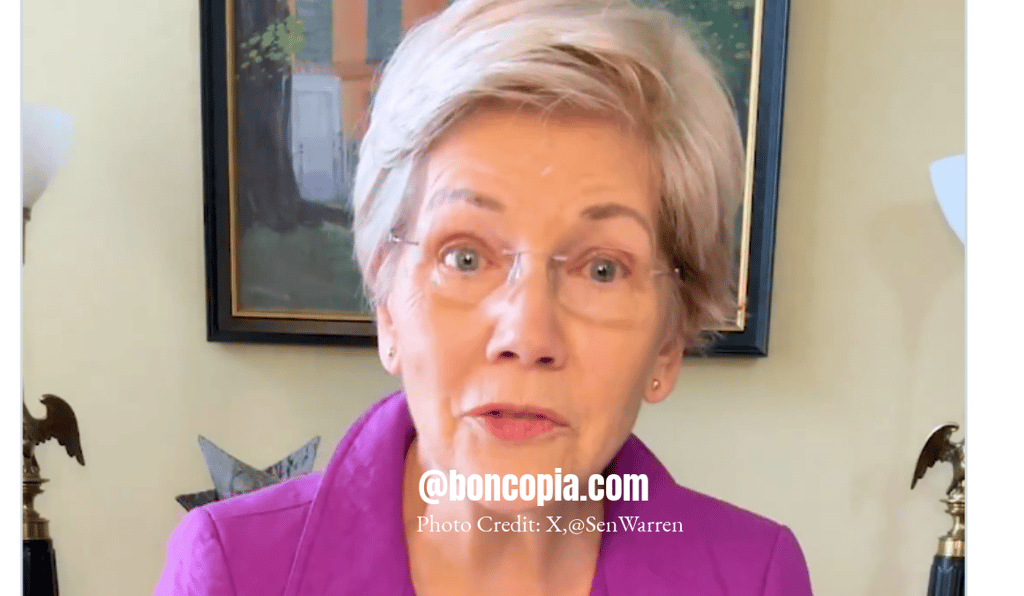Elizabeth Warren Takes on Trump's New Social Security Chief: A Battle for Transparency and Benefits
5/11/20253 min read


Elizabeth Warren Takes on Trump's New Social Security Chief: A Battle for Transparency and Benefits
Introduction
In a bold move that has sparked widespread discussion, Senator Elizabeth Warren has publicly challenged the newly appointed Social Security Commissioner, Frank Bisignano, under President Trump's administration. With nearly 200 pressing questions in hand, Warren's latest video on X (formerly Twitter) is not just a critique but a call to action, aiming to safeguard the benefits millions of Americans rely on. This clash highlights a deeper tension between policy reform and public trust in one of the nation's most critical social programs.
The Core Issue: Accountability and Transparency
Warren's concern centers on Bisignano's background as a former executive in the financial services industry, which she believes may not align with the needs of Social Security recipients. Her video, shared on May 8, 2025, details how she sent a hefty list of unanswered questions to Bisignano on his first day, questions that the previous acting head of the SSA had dodged. This act of transparency is crucial, Warren argues, especially as the Trump administration pushes for changes that could potentially cut benefits and reduce staff, moves that have already raised alarms among Democrats and former SSA officials.
The Political Backdrop
The timing of Warren's critique is significant. It comes amidst a period of transformation within the Social Security Administration (SSA), marked by Trump's efforts to modernize the agency and cut costs. Recent reports indicate that the SSA has begun shedding jobs, aiming to reduce its workforce by over 12%, a move that has left beneficiaries worried about the future of their payments. Warren's "war room" strategy, alongside other Senate Democrats, is a direct response to these changes, reflecting a broader concern about the impact of the Department of Government Efficiency (DOGE) initiatives on Social Security.
Public Reaction and Media Coverage
The reaction to Warren's video has been mixed but intense. Supporters praise her for holding the administration accountable, while critics argue that her focus is misplaced, especially given Trump's recent successes in other areas, like the trade deal with the UK. Media outlets like Newsweek have covered the growing unease among Social Security recipients, with some marked as "not currently receiving payments" on the SSA website, fueling Warren's urgency. Meanwhile, the SSA itself has highlighted its achievements under Trump, such as surging employees to front-line positions and recognizing National Social Security Month, painting a picture of progress that contrasts sharply with Warren's narrative.
Analyzing the Stakes
At the heart of this conflict is the future of Social Security, a program that supports over 73 million Americans with monthly payments totaling $130 billion. The potential for benefit interruptions, as warned by former Commissioner Martin O'Malley, looms large. Warren's insistence on answers is not just about policy but about ensuring that every American who has paid into the system over a lifetime of hard work receives the benefits they deserve. This battle is as much about trust in government as it is about fiscal policy.
Conclusion: A Call to Reflect
As this drama unfolds, it raises critical questions about the balance between efficiency and empathy in public service. Warren's approach, while controversial, underscores the importance of transparency and accountability in governance. Whether you side with her push for answers or question the timing and focus of her critique, one thing is clear: the future of Social Security is a battleground that will shape the lives of millions.
Thought Questions:
How should the balance between cost-cutting measures and maintaining robust public services like Social Security be managed?
Does the background of a commissioner influence public trust in an agency like the SSA, and if so, how?
What role should political opposition play in scrutinizing administrative appointments and policies, especially in sensitive areas like Social Security?
hello@boncopia.com
+13286036419
© 2025. All rights reserved.